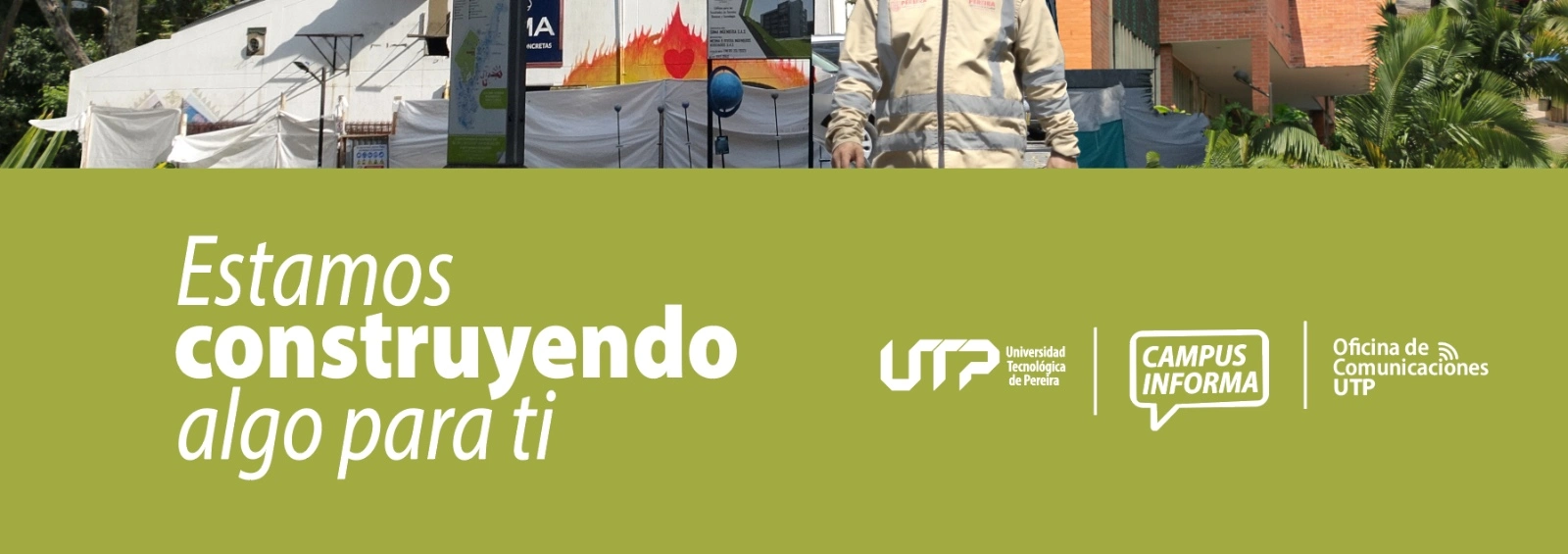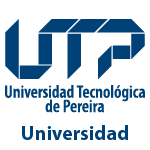David Landes, Política de Regalías y funciones de la Universidad Colombiana
Quisiera compartir algunos apartes de la obra de David Landes, con el único propósito de que seamos críticos con la política económica colombiana, la de siempre, la de Ana y Jaime, la de “Café y Petróleo”, la de “vendo, vendo, vendo, vendoo … quién da más?”, con el propósito de que los académicos al menos reflexionemos desde nuestra posición de docentes, que imaginemos que valor agregado tecnológico o científico puede dársele a esas políticas y cómo la Futura Ley de Educación Superior puede propiciar un futuro diferente.
A propósito de las regalías, las posibilidades de un desarrollo tecnológico y agroindustrial. Comentarios desde algunos apartes del libro de David Landes “The wealth and poverty of nations”.
El bienestar es el resultado de políticas económicas inteligentes, no de políticas cuatrienales improvisadas y oportunistas.
España dilapidó todas sus posibilidades de desarrollo porque la riqueza le llegó inesperadamente, sin esfuerzo. Siempre es más fácil malgastar lo que no ha costado, siempre es más fácil disponer de lo que no nos ha costado. Tal vez al estado colombiano y a nosotros los colombianos nos vendría bien reflexionar sobre qué es lo que el actual gobierno propone gastar y cómo lo piensa distribuir –los ingresos de las regalías-. Tal vez sea importante fijarse si solamente nos vamos a gastar la platica de esos recursos a diestra y siniestra, si haremos lo de España, lo de gastar, sin crear competencias científicas e industriales, como si lo hicieron Inglaterra, Francia y Alemania, Gran Bretaña y otros.
Landes hace el ejercicio de describir una posible sociedad ideal de progreso tecnológico y social, no queriendo necesariamente catalogarla como la mejor o superior, simplemente una sociedad ajustada para producir bienes y servicios. Especula que esta sociedad de crecimiento y desarrollo ideal sería una que:
1. Conociera como operar, gerenciar y construir los medios de producción, al tiempo que tuviera la capacidad para crear, adaptar y manejar técnicas avanzadas en la frontera tecnológica.
2. Fuera capaz de transferir este conocimiento y formas de hacer las cosas a la juventud, ya sea a través de los métodos formales de enseñanza o por otros métodos de entrenamiento.
3. Seleccionara para los trabajos a las personas más competentes y de mayor mérito relativo; promoverlas y removerlas sobre la base de su desenvolvimiento objetivo.
4. Permitiera el desarrollo de la libre empresa individual y colectiva; una que promoviera la iniciativa, la competencia y la emulación.
5. Permitiera a las personas disfrutar y aprovecharse de los logros de su trabajo y su entrega.
Estos estándares implican corolarios: engendrar equidad, no discriminar por criterios irrelevantes (raza, sexo, religión, etc.), preferencia por la racionalidad científica, antes que por la magia o la superstición (irracionalidad).
The Wealth and Poverty of Nations: Why Some are So Rich and Some So Poor by David S. Landes.
Wealth comes from intelligent economic policies. Through technology and science many of nature's inequalities can be bested. A good example of this is how productivity in the Southern United States, states like Texas, shot up after World War II and the introduction of cheaper civilian air conditioning to bat away the slowing effect of heat exhaustion.
Winners and Losers: The Balance Sheet of Empire Ironically, the nations that had started it all, Spain and Portugal, ended up losers. Here lies one of the great themes of economic history and theory. All models of growth, after all, stress the necessity and power of capital--capital as substitute for labor, easer of credit, balm of hurt projects, redeemer of mistakes, great enterprise's second chance, chief nourisher of economic development. Given capital, the rest should follow. And thanks to empire, Spain and Portugal had the
capital.
Spain particularly. Its new wealth came in raw, as money to invest or spend. Spain chose to spend--on luxury and war. War is the most wasteful of uses: it destroys rather than builds; it knows no reason or constraints; and the inevitable unevenness and shortage of resources lead to ruthless irrationality, which simply increases costs. Spain spend all the more freely because its wealth was unexpected and unearned. It is always easier to throw away windfall wealth. [p. 171].
At this point Landes discusses the varying cultural opinions of wealth, and I found this to be entertaining and illuminating: A good Calvinist would say, that was what was wrong with Spain: easy riches, unearned wealth. Compare the Protestant and Catholic attitudes toward gambling in the early modern period. Both condemned it, but Catholics condemned it because on might (would) lose, and no responsible person would jeopardize his well-being and that of others in that manner. The Protestants, on the other hand, condemned it because one might win, and that would be bad for character. It was only much later that the Protestant ethic degenerated into a set of maxims for material success and smug, smarmy sermons on the virtues of wealth.
The Nature of Industrial Revolution. Why Europe? Why Then?# Landes lists the three most important reasons why the Industrial.
Revolution happened in Europe when it did:
1. Growing autonomy of intellectual inquiry;
2. The development of unity in disunity in the form of a common, implicitly adversarial method, that is, the creation of a language of proof recognized, used, and understood across national and cultural boundaries; and
3. The invention of invention, that is, the routinization of research and its diffusion.
On the establishment of the scientific method, Landes describes that some people were not happy about losing magic:
Note that for some, this is cause for regret, as at a self-impose impoverishment: "... the new quantitative and mechanistic approach eventually established a metaphysics which left no room for essences, animism, hope, or purpose in nature, thus making magic something 'unreal,' or supernatural in the modern sense." Not to feel bad: the road to truth and progress passed there. As David Gans, an early seventeenth-century popularizer of natural science, put it, one knows that magic and divining are not science because their practitioners do not argue with one another. Without controversy, no serious pursuit of knowledge and truth.
Britain and the Others
Landes describes the ideal society for technological and economic progress:
Let us begin by delineating the ideal case, the society theoretically best suited to pursue material progress and general enrichment. Keep in mind that this is not necessarily a "better" or a "superior" society (words to be avoided), simply one fitter to produce goods and services. This ideal growth-and-development society would be one that.
6. Knew how to operate, manager, and build the instruments of production and to create, adapt, and master new techniques on the technological frontier.
7. Was able to impart this knowledge and know-how to the young, whether by formal education or apprenticeship training.
8. Chose people for jobs by competence and relative merit; promoted and demoted on the basis of performance.
9. Afforded opportunity to individual or collective enterprise; encouraged initiative, competition, and emulation.
10. Allowed people to enjoy and employ the fruits of their labor and enterprise. These standards imply corollaries: gender equality (thereby doubling the pool of talent); no discrimination on the basis of irrelevant criteria (race, sex, religion, etc.); also a preference for scientific (meansend) rationality over magic and superstition (irrationality).
You Need Money to Make Money
Primarily about developing countries and why you need investment for industry. An interesting note on why developing countries still need capital, despite being labor-rich:
Late growth, says Gerschenkron, also tends to be based on "the most modern and efficient techniques," because they pay the most and nothing less can compete with more advanced nations. These techniques are typically capital-intensive, which would seem to be irrational for countries that abound in cheap labor. Gerschenkron recognizes the paradox, but explains it by the quality of the workforce. Good, well-disciplined labor is in fact scarce, he says, scarcer than in richer, more advanced countries. So it pays to substitute capital for labor.
The Wealth of Knowledge. The South American Way South America's industrial beginnings did not generate an industrial revolution. Even the construction of railways did not do the trick.
Some things had to be done at home: the machines had to be serviced and repaired, for example. But these shops stuck to maintenance; almost never did they move on to manufacturing on their own. Once again, natural and social circumstances were unfavorable. Fuel and materials cost more than in Europe or the United States, and skills were wanting. It was all very rational: comparative advantage made it easier and cheaper to buy abroad. The trouble with such rationality is that today's good sense may be tomorrow's mistake. Development is long; logic, short. The economic theory is static, based on conditions of the day. The process is dynamic, building on today's abstinence to tomorrow's abundance. Some things will never happen if one does not try to make them happen. If the Germans had listened to John Bowring... That British economic traveler extraordinary lamented that the foolish Germans wanted to make iron and steel instead of sticking to wheat and rye and buying their manufactures from Britain. Had they heeded him, they would have pleased the economists and replaced Portugal, with its wine, cork, and olive oil, as the very model of a rational economy. They would also have ended up a lot poorer.
Japan: And the Last Shall Be First
The Japanese were learners because they had unlimited aspirations. Their mythology told of a ruler descended from the sun goddess and a land at the center of creation. They thought of themselves as a people specially chosen, as warrior-dominators with all of East Asia as legitimate domain. They had long been culturally subordinate to China, takes rather than givers, students rather than teachers. Their ideographic writing and writing implements came from China; much of their language as well. Their knowledge of silk, ceramic, and printing, their furnishings and the style of their paintings, their Buddhist beliefs, their knowledge of Confucianism--all from China. Yet learning never made them feel smaller; on the contrary, they thought themselves inherently superior to the Chinese. [p. 353]
With this attitude for learning they quickly adopted many European qualities and characteristics, including Christianity. But, in the case of Christianity they realized it was a weapon of the Spanish, historically, and that could not stand:
The Japanese went about eradicating Christianity with characteristic ferocity. Nero would have been ashamed for his softness. Christians were compelled publicly to abjure. Those who refused or backslid were tortured and burned or beheaded. Those who helped missionaries, the same. The third Tokugawa shogun (army chief), Iemitsu, continuing the
policy of his grandfather and father, often attended the torture sessions himself. Those who resisted were killed to the last babe in arms. [...] It was the Spanish Inquisition all over again, this time against Christians.
Winners and...
All of Japan's big department stores have separate boutiques for these items: a country ready to spend a hundred dollars for a supermelon with a ribbon attached can afford to spoil itself. No room, though, for Kodak film; the Japanese have their own Fuji brand--and Japanese light is different.
This mercantilist policy has arouse indignation among trading "partners" and puzzlement among economists. Don't the Japanese understand that such a policy is a deliberate impoverishment of their own population, who pay that much more for what they buy? No one would call the Japanese fools, even if they do occasionally make mistakes.
Don't they understand comparative advantage? Don't they know that free trade promotes growth and wealth?
To these rhetorical questions, the Japanese reply that the end of economic policy is not low prices and discount distribution. The goal is market share, increased capacity, industrial and military strength. Producers are more important than consumers. Anyone can buy, but not everyone can make. If people spend less now, they save more (about one third of income). Their children will have more and Japan will be the stronger.
"Business, like love, laughs at locksmiths." In reference to laws against business. (p. 42)
"The Romans had a saying, Pecunia non olet--Money does not smell. People may not like the way it was made or the person who made, but they like, and will take, the money." (p. 150) "Wealth is not so good as work, nor riches so good as earnings." In reference to the Spanish throwing away the fruits of empire and the United States of today buying everything from abroad and living in leisure (p. 173) .
"Intolerance, superstition, ignorance--these are easier to acquire and cultivate than to uproot." In reference to the expulsion of the Jews from Spain and Sicily and their "persistent backwardness" (p. 185) . "Native peoples soon learned to disappoint their conquerors by giving up too quickly. No killing; no medals and promotions" In reference to British battles in Africa.
Es evidente que en Colombia la educación tecnológica, en especial para la manufactura (entendiéndose como el desarrollo del sector secundario de la economía y la fabricación de bienes de capital) tendrá que desempeñar uno de los papeles más importantes en la formación de las generaciones para el futuro, pues es la única opción de desarrollo del país.
No se puede seguir pensando que la vinculación Universidad-Sector Productivo consiste en adaptar el sistema educativo a lo que requiere la “Empresa” tradicional (la empresa de siempre, quedada, amañada, cortoplacista, atada a los procesos de producción tradicionales ineficientes en el uso de recursos materiales, humanos, energéticos y ambientales), porque ésta sólo requiere unos perfiles reducidos, particulares, que no necesariamente reflejan la tendencia para un país desarrollado y sí para producir o mantener más de lo mismo. Pero, si el sistema educativo invierte a largo plazo y prepara bien a sus egresados, son ellos los que posteriormente generarán nuevos perfiles y puestos laborales, nuevas ideas de empresas, nuevas oportunidades de trabajo. Un reto de la Universidad Tecnológica es ofrecer una educación básica actualizada, pertinente y sólida, no sujeta a un puesto o habilidad, sino fundamentada en la comprensión y en el
dominio de las tecnologías experimentales y computacionales a partir de la construcción de modelos matemáticos y físicos (lo que demanda el rediseño de las áreas de ciencias básicas, el repensamiento de la razón de existencia de la Facultad de Ciencias Básicas). Se requiere que el egresado pueda moverse con dominio en cualquier campo laboral, porque la formación con altura debe constituir la base en todos los ámbitos: en el sistema político, la producción, la ecología, la cultura, la recreación y la vida cotidiana. La Universidad Tecnológica tiene que concebir cuál es el nivel de ciencias básicas que debe considerarse en sus planes de estudio, debe cuestionarse cuáles son los clásicos humanistas que sus egresados podrían seguir, no dejar de lado la literatura. Es armar un planteamiento de formación integral de los ciudadanos, en el que la tecnología y el trabajo juegan un papel
muy importante.
Para reflexionar sobre la importancia de los planes de educación en Tecnología:
In England technology education is called “Design and Technology” (DT) and “Information and Communication Technology” (ICT). The curriculum for DT involves the two areas of Design and Making. The different subject areas in most schools would be those four: resistant materials; graphic products, textiles, food technology plus electronics and mechanisms. Some schools would include a unit on "structures" as well. In ICT the subject areas are Word processing; Graphics, Computer Aided Design (CAD); Desk Top Publishing (DTP); Spreadsheets and Computer Aided Manufacture CAM.
In the Netherlands technology education revolves around three main axes : Technology and Society ( Daily life, industry, jobs, environment), treatment of technical products (Principles of functioning, technical systems, technological control, use of technicalproducts), making of practical projects (Design, work of materials and use of control).
Agradeciendo la atención,
Cordialmente,
Carlos Alberto Romero
Profesor Escuela de Tecnología Mecánica
Universidad Tecnológica de Pereira











